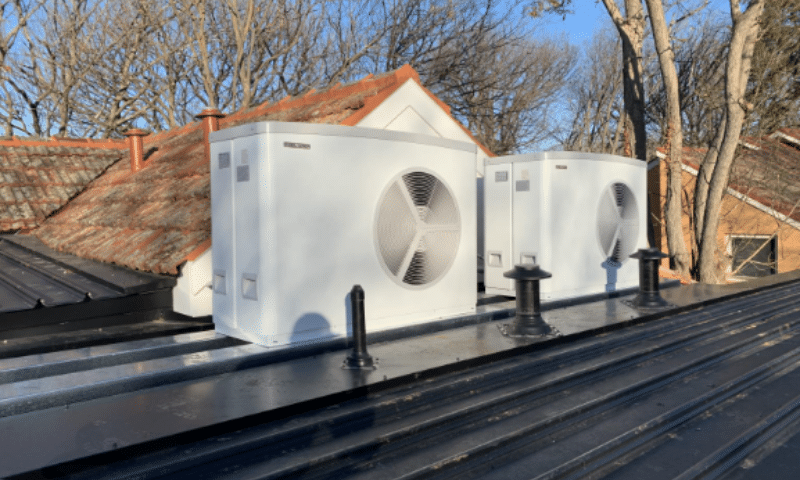Solar Hydronics uses water as a heat transfer medium in heating and cooling systems. Heating water can be an energy-intensive and expensive process. But not so when you utilise solar thermal energy the sun provides!
Also known as solar thermal, solar hydronic technology can take the concept of solar hot water a step further. Instead of just heating your water, it can also heat your home and be used in other commercial and industrial applications where large volumes of instant hot water are required.
If delving into this green technology intrigues you, consider gaining insights through free solar quotes from Energy Matters to see how solar solutions align with your unique needs and preferences.

How do solar hydronics work?
Given the energy-intensive nature of heating water, solar hydronic systems can not only help reduce electricity-related greenhouse gas emissions but also save you money over the long term.
Briefly, here’s how a solar thermal system works:
Solar hydronic/thermal technology uses an evacuated tube collector system situated on a roof. Sun shining on the solar collectors heats a special fluid within the tubes. The fluid then pumps into heat exchange coils in a heavily insulated storage tank.
The heat exchange coils, strategically placed to ensure maximum efficiency, heat the water in the tank, which can be held for several days at suitable temperatures if weather conditions are unfavourable. Back-up electric or gas booster systems can also ensure ongoing hot water.
The hot water can then circulate throughout a building continuously, ensuring hot water is always immediately available, without the long wait usually experienced with standard hot water systems.
The hot water can also pipe through radiators installed in strategic locations throughout a building to provide heating or pipes under the floor, providing a gentle, radiant warmth. Bypass systems allow this space heating aspect to switch off when the temperature levels inside a building are optimum. It can also undergo adaptation for cooling purposes.
Given the superior heating process and advanced insulation, large volumes of hot water can be economically and cleanly generated and stored for days in low light conditions using a solar hydronic system.

Hot water can be a significant expense in many businesses. Learn more about commercial solar hydronic systems for farms, laundries, hotels and hospitals.
Solar thermal systems can be used for pre-heating water for industrial cooking, steam requirements and energy generation.
Steaming hot showers and toasty warm rooms in winter – making solar hot water even more helpful! Learn more about solar hydronics for your home.
Steaming hot showers and toasty warm rooms in winter – making solar hot water even more helpful! Learn more about solar hydronics for your home.







































